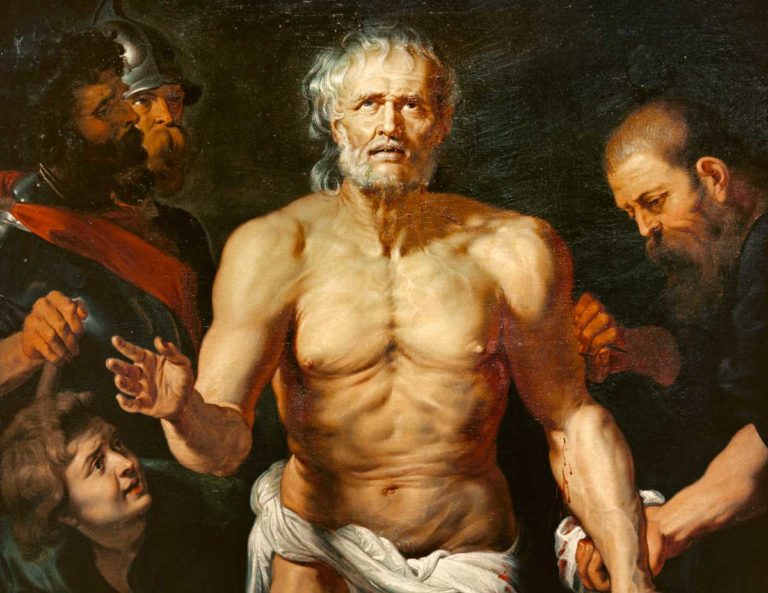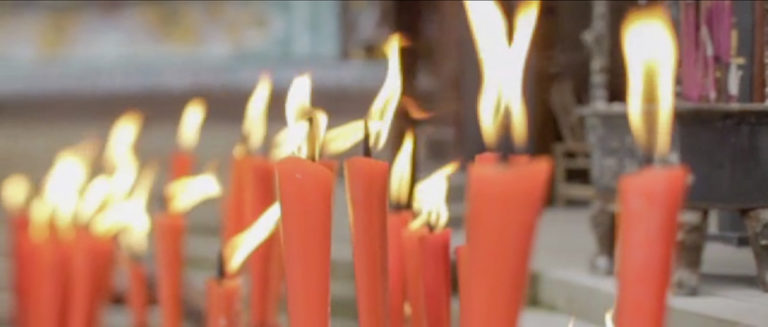This is a companion piece to ChengduLiving’s Portrait of a Chengdu Artist: Luo Fa Hui. Here I put together some excerpts from an interview back in October. Stay tuned next week for more Chengdu artist love, both here and at ChengduLiving.com

On China’s Future:
-有希望。中国朝着良性方向发展,不是以前那样封闭。现在我们很多人,都有机会和权贵坐在一起。这是大趋势,不是一个政党可以控制的,所以这个是个很大的希望。现在慢慢的改变,慢慢开始尊重人权,尊重人的思想,自由度,精神上的,越来越宽。首先是看着这30年的变化,亲身体会,当年是怎么样,现在是怎么样,随便怎么比。
There’s hope. China’s is moving forward in a good direction, not moving inward like before. Now a lot of us have the opportunity to sit down with rich, powerful people. This is an historical trend, not something a political party can control, so that gives us a lot of hope. Slowly things are starting to change, slowly human rights and ideas are gaining respect. The level of freedom is rising and getting broader and broader. If I look at the changes of the past 30 years, at my own experiences of China then and now, there is no comparison.
On the impact of art on society
-现在有,但是跟西方的不一样。感动本地人,是一部分精英。中国更多是商业标准。中国没有一个美术管理的体系,没有公认的标准。商业标准影响很多人,大众。更多是拍卖行的标准。当代艺术需要一定的专业知识。很多人缺乏一系列的支持。我们没有完整的知识。大学生在学校就是老师讲的那些。社会不是一个大课堂。我们的社会应该是一个大课堂,才可以趋于良性。
There is an impact, but different from that of the West. Those touched by art here are part of the elite. China uses a business standard (to judge the value and impact of art). China doesn’t have an art management system or a widely accepted set of standards. The “business standard” has influenced a lot of people, most people. The standard is often set by the auction. Contemporary art needs professional knowledge. A lot of people are missing a support system (that helps to understand and value art). We do not have a complete body of knowledge. Univeristy students are just listening to their teachers. Society is not a classroom. Our society must be a classroom, in order to establish enlightened trends.
On the Chinese education system:
-中国如果有一个良性的健康的教育环境社会环境,我就希望他自己在这儿发展。我孩子还小,让他很自由的在这个环境里面长大。但是走出这个环境,外面就没有了。中国很多送到外面,不是一个整体。你要担心的问题,有些就没办法,必须去面对。
If China is to have an enlightened and healthy education environment and society, I want it to develop indigenously. My child is young, I let him grow up naturally in this environment (荷塘月色, He Tang Yue Se outside of Chengdu). But as soon as you leave here, that natural environment disappears. Those in China who (raise their children in China then) send their children abroad, fail to provide a complete environment for their children. Some issues and problems are inescapable, you must face them.

On Chinese media:
-大众媒体传播的面更广,艺术家只是一个点,必须要专业的大众媒体来传播这些思想。现在大众媒体的一些道德标准有些问题,宣传的目的是政治性的,不是让社会更多人认识现在的情况。他们必须应该要做一些文化活动去推动大众的文化进程。我这种艺术家,只能做一些自己份内的事。
Mainstream media has a large impact, artists are just a single point. The mainstream media has to help diffuse ideas. The moral character of today’s media has certain problems, they are heavily influenced by politics. They fail to let the public know about the current situation. The media should initiate cultural events to help increase the public’s cultural awareness. An artist like me can only do my own thing.
On Chengdu’s cultural environment:
-有其他地方想做,但是没有这么多好的艺术家,北京上海肯定也是艺术家影响比较大的大城市。他们有很多好的推广机构,有收藏家,美术馆。成都这种全民参与的,在中国是很少的。
A lot of cities are trying (to be as culturally aware as Chengdu), but they don’t have enough good artists. Of course, big cities like Beijing and Shanghai have large artist communities with a sizeable impact – they have galleries, art dealers etc. Few cities have such a large public interest and participation in the arts like Chengdu though.

Why Chengdu?
-成都有人文背景,丰富的文化底蕴,有全国全世界的艺术家交流比较多。这种城市的贫富悬殊不是特别大,很多娱乐方式比较共同。(老板和农民都喜欢吃火锅)东区的展览,谁都想去看看。成都是移民城市,包容性强。西安这种城市,人文背景也很深厚,但是现代艺术,可能就比较难。
Chengdu has a cultural background and a diverse cultural foundation. There is a strong level of communication among domestic and international artists here. The income disparity in Chengdu is also not as wide as in some other places, a lot of entertainment options here cross social boundaries. (Bosses and peasants both love to eat hot pot). Everyone goes to check out the exhibitions in the East Park. Chengdu is a migrant city; it can accept others easily. Xi’an for example, has a strong cultural background, but the potential for contemporary art there is low.
一来成都就觉得成都人很平和。面带笑容。七八十年代我们走很多城市,人的表情都很严肃。成都你来就觉得大家都在玩,很开心。
When you arrive in Chengdu you’ll feel that the people here are easy going. They have smiles on their faces. In the 1970s and 80s we drifted through a lot of cities and everyone’s expression was so serious. When we got back to Chengdu it seemed as if enveryone was having fun, everyone was happy.
-我在这儿是一个艺术家,出去跟老板大商人在一起,我不算什么,但是他们尊重我。尊重你是一个独立精神的艺术家和文化人,这种良知在这个城市里存在。我喜欢这种存在。另外城市的艺术家,他们的社会圈子,基本上就是艺术圈子。你看我的圈子,很多商人,政府官员,他们愿意和我交朋友,而且尊重我。这个在中国现阶段来讲是很可贵的,是良性的自然的。别的城市可能有机会坐在一起,但是在里面可能有一些另外的东西,利益上的,不见得是朋友。重庆也是艺术家在艺术家圈子。你在重庆做个展览,可能不会有很大的社会共鸣。在成都,可能社会各界都要来。观众产生共鸣,这是艺术家的理想。
Here I am an artist, but then I leave my home and sit with bosses and businessmen, I am nothing, but they respect me. To be respected as an individual artist and man of culture, this type of consciousness still exists in Chengdu. I like the fact that this still exists. In other cities, artists only hang out with artists. I have businessmen and officials in my circle of friends; they’re willing to sit with me and willing to be my friend. This is very valuable in today’s China. It’s enlightened, it’s natural. In other cities artists and businessmen can sit together, but there may be some other things going on, issues of benefit, not purely friendship.
In Chongqing, artists also only hang out with artists. If you put on an exhibition in Chongqing, there might not be much of a social impact. But in Chengdu, all members of the public will show up and sympathize with your work. This is ideal.

On the next step:
-成都只是工作和生活,下一步的理想只是在我有生之年画一些好画。其他事情太耗精力了,我不敢去参与太多。
到了我这个年龄段,就有清楚的认识,你该做什么事,做好就行了。外面的活动,不是你能把空的东西,不用去。
完成你作品的时候,你用心去做好
Here in Chengdu I will live and work. The future, ideally, will see me using up the rest of my years making good paintings. Anything else takes up too much time and energy, I am not interested. When you reach my age, one has a clear idea of what one should do – do that well and that’s enough. Outside things are uncontrollable, forget about them. Put your heart into finishing your work.
Photos by Jeff Weil.







One thought on “Excerpts from an Interview with Luo Fahui”